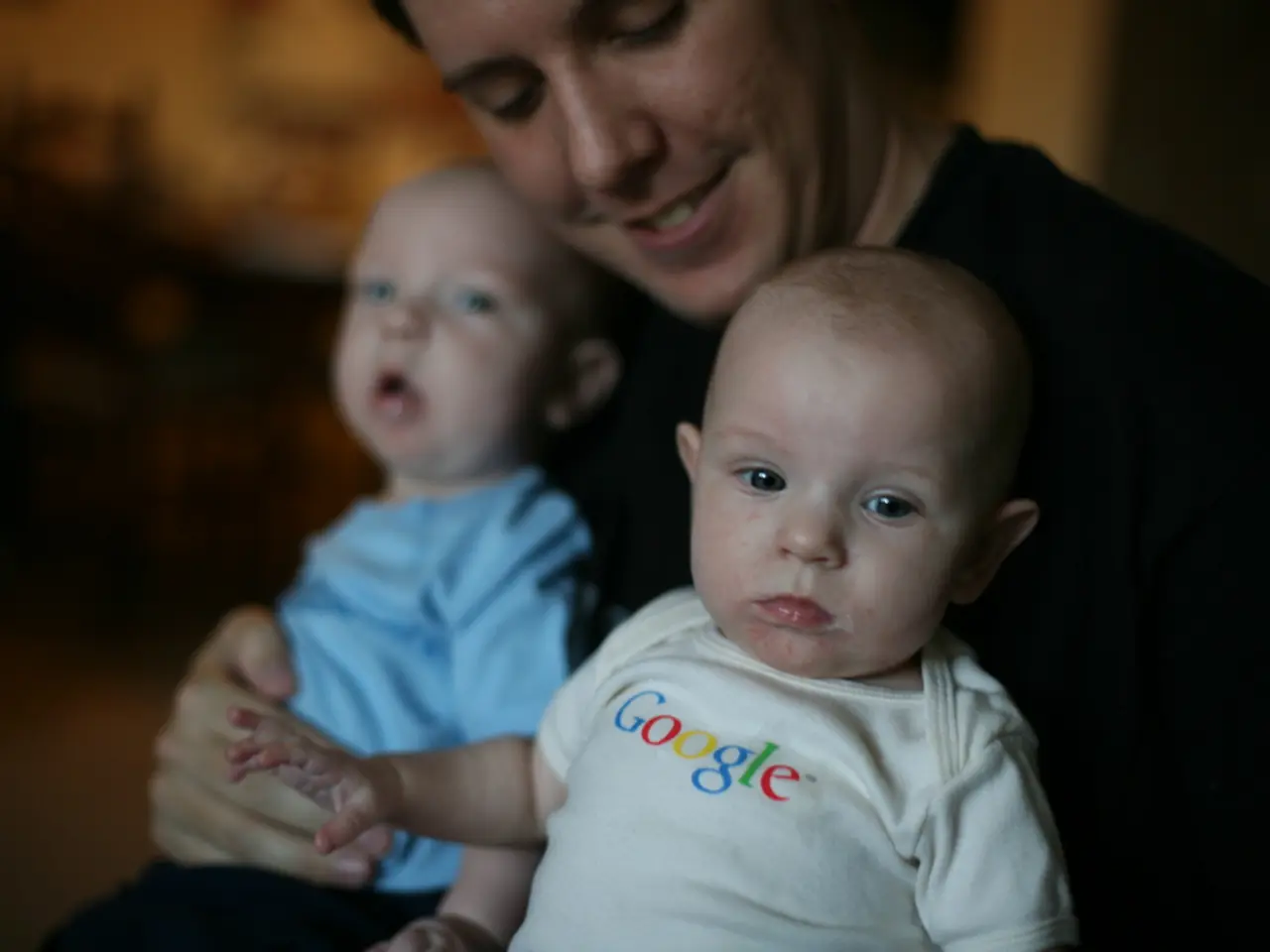Eight infants born in the UK through a groundbreaking IVF method involving three genetic parents
Recent advancements in a cutting-edge IVF method known as mitochondrial donation, particularly the technique called pronuclear transfer, have made significant strides in preventing the transmission of mitochondrial DNA diseases to children. This innovative approach, which involves transferring the nuclear genetic material from a fertilized egg of a mother who carries pathogenic mitochondrial DNA mutations into a donor egg that contains healthy mitochondria but has had its nucleus removed, has resulted in eight healthy babies being born in the United Kingdom.
As of July 2025, these eight babies, four boys, four girls, and a set of identical twins, have shown no signs of mitochondrial disease. These births are the outcome of pregnancies from women at high risk of transmitting serious mitochondrial DNA mutations.
However, it's essential to note that this therapy is a risk reduction strategy rather than a guarantee of complete elimination of mitochondrial DNA disease. Some mutant mitochondria may still be carried over with the cytoplasm during the pronuclear transfer process, creating a minimal residual risk. Nevertheless, this risk is low and considered manageable compared to natural inheritance.
The technique raises important scientific and ethical questions, and ensuring safety, regulatory approval, and public trust are critical. The UK has been a pioneer in legalizing and regulating this approach, whereas it remains unapproved in countries like the U.S. The therapy offers families the hope of having genetically related children without the burden of mitochondrial disease, which previously had no cure.
Published research from Newcastle University and NHS England demonstrates promising clinical outcomes, with babies meeting all developmental milestones and very low or undetectable levels of disease-causing mitochondrial DNA. This breakthrough provides tangible hope to families with hereditary mitochondrial disorders.
In conclusion, mitochondrial donation IVF via pronuclear transfer represents a cutting-edge and increasingly validated reproductive option to prevent inherited mitochondrial diseases. While not entirely risk-free, it significantly reduces transmission risk, giving affected families a viable path to have healthy, genetically related children. Continued research, ethical evaluation, and regulatory oversight will shape its broader adoption globally.
[1] Newcastle University. (2025). Mitochondrial donation IVF: Breakthrough in preventing inherited mitochondrial diseases. Retrieved from https://www.ncl.ac.uk/press/articles/archive/2025/07/mitochondrial-donation-ivf-breakthrough-in-preventing-inherited-mitochondrial-diseases/
[2] NHS England. (2025). Mitochondrial donation: The first babies born using this technique in the UK. Retrieved from https://www.nhs.uk/news/fertility-and-conception/mitochondrial-donation-the-first-babies-born-using-this-technique-in-the-uk/
[3] Human Fertilisation and Embryology Authority. (2025). Mitochondrial donation: The first babies born using this technique in the UK. Retrieved from https://www.hfea.gov.uk/news/2025/07/mitochondrial-donation-the-first-babies-born-using-this-technique-in-the-uk/
- The groundbreaking advancements in mitochondrial donation IVF, as demonstrated by the healthy babies born in the United Kingdom, hold promises for the future of health-and-wellness, especially for families at risk of transmitting mitochondrial DNA diseases.
- While publications from prestigious institutions like Newcastle University and collaborative efforts with NHS England highlight the low risks associated with mitochondrial donation, questions regarding technology, science, and ethics persist, requiring careful consideration and regulatory approval.
- As the number of countries considering legalizing and regulating mitochondrial donation grows, gizmodo and other outlets have begun examining its impact on the science landscape, recognizing it as a significant leap forward in the prevention and treatment of mitochondrial DNA diseases.




